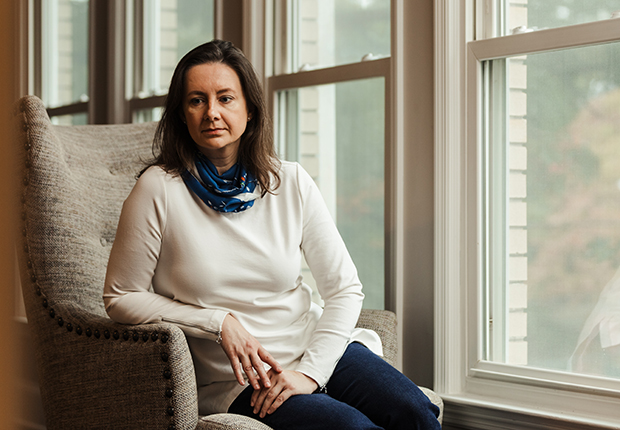AARP Hearing Center

By Drew Jubera
When her husband, Tom, was diagnosed with lung cancer in August 2016, Jennifer Holley Lux became his full-time caregiver.
Like many of the 1.3 million family caregivers in Georgia, Lux did it all, managing medications, driving him to appointments and speaking by phone almost daily with physicians and nurses.
When her husband’s condition worsened and he came home after a hospital stay, Lux said, she felt overwhelmed.
She had to learn to administer a feeding tube—sterilizing equipment, using a syringe, flushing an IV catheter and clearing bubbles from the tube, critical procedures she could not fully absorb during a single nurse’s visit.
Lux, whose husband died about a month later, at age 70, wishes she had been shown how to perform essential tasks before he left the hospital.
“I was not prepared for the complexity of it all,” said Lux, 44, a writer and editor in Atlanta.
Few people are. In one national survey of caregivers, nearly half said they performed medical or nursing tasks for people with multiple physical and cognitive conditions. Yet 47 percent of them never received training.
Requiring instruction
That’s why AARP Georgia is helping draft the Georgia Family Caregivers Act for the 2019 legislative session. The measure would require a hospital to record a caregiver’s name when a patient is admitted and to inform the caregiver when the patient is to be discharged.
The hospital would also have to provide education and instruction on medical tasks to be performed at home.
“It serves as a guide to ensure that caregivers get the information they need,” said Melissa Sinden, advocacy manager for AARP Georgia. “We want this to be as easy as possible for everybody involved.”
In the 37 states, the District of Columbia and two territories that have passed similar laws, benefits include better treatment for patients, less stress on caregivers and reduced re-admissions.
Some hospitals and doctors believe they already provide appropriate instruction. It’s one reason the Georgia Hospital Association has balked at previous attempts to pass the act.
Hospitals have reduced readmission rates “without the addition of overly burdensome and duplicative regulations,” said Amy Krieg, the association’s government relations manager.
She said the association would work with AARP and others “on best practices for patients.”
The current version of the proposal is supported by the Georgia chapter of the Alzheimer’s Association and the Georgia Nurses Association.
Sinden thinks the General Assembly’s growing focus on rural development makes the time ripe for the Family Caregivers Act. Issues such as a shortage of physicians have raised awareness about caregivers’ importance. “Our only objective is to keep people from returning to hospitals and to help caregivers.”
Lux is convinced that such a law would have helped her.
“The most important thing is the comfort of the patient who is suffering,” she said. “The opportunity for a training session would’ve saved me and my stepdaughter a lot of stress.”
For more information on the issue, contact Sinden at msinden@aarp.org.
Drew Jubera is a writer living in Atlanta.































































